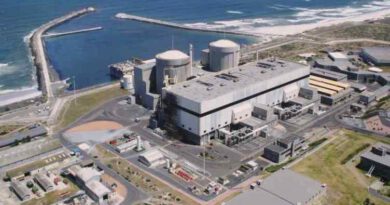Task team setup to finalise urgent economic recovery plan
Social partners at the National Economic Development and Labour Council (Nedlac) have agreed to set up a high-level team that will put together an economic recovery programme following a meeting with President Cyril Ramaphosa on Thursday.
The meeting between government, organised labour, business and the community constituency comes ahead of a highly anticipated national address where Ramaphosa is expected to inform the nation about how the country will proceed after government’s national state of disaster lapses on August 15.
Ramaphosa is facing pressure to fully reopen the economy with operations in the alcohol, tobacco and tourism and hospitality sectors largely restricted even under advanced lockdown Level 3.
Open up the economy.
Cosatu’s parliamentary coordinator Matthew Parks said task team would consolidate the proposals made by the social partners into one position that will form the basis for the economic recovery trajectory for the country.
This should be done in the next three weeks after which the social partners will hold a meeting to consider and adopt the plan. After which the plan will be presented to the cabinet.
Parks said there was a large consensus between labour, government and business on most issues regarding the economic recovery.
“Nedlac constituents agree that the economic crisis is increasing levels of vulnerability including extreme poverty and hunger and that measures are required to stem further declines in GDP, a worsening of the budget deficit and deeper job losses,” said the Presidency in a statement.
It said the team which will be made up of ” senior leadership” will focus on s job creation, having a sectoral approach, prioritising infrastructure, energy security and working on the bottlenecks to economic growth.
Read: Ramaphosa prepares to ease lockdown restrictions: sources
“We want to see as much of the economy opened up as possible,” said Business Unity South Africa’s CEO Cas Coovadia. He said there was no reason that alcohol or tobacco products should not be sold.
In advocating for an opening of the economy, Coovadia said this should be done in line with strict adherence to the requisite health protocols.
“There have been the second wave of infection in other countries, we can’t discount that, but I think if we manage issues like transportation and ensure that the health protocols are in place and are abided to I think we can manage this effectively,” said Coovadia saying the country should not allow the economy to get to a point where parts of it will not be in a position to recover.
He said more employees returning to work would also allow the government to leverage on the resources of the private sector to screen people, provide sanitation, masks etc, particularly because a lot of employed South Africans live in townships and informal areas where social distancing is not possible.
“It manages a bit better in our view the health side but also the economic impact has been devastating,” he said while the government had the rescue package in place it’s clear that this support cannot be sustained much longer.
Action and save jobs
In a joint presentation to the National Economic Development and Labour Council (Nedlac) and Ramaphosa on Wednesday trade union federation Cosatu, the National Council of Trade Unions (Nactu) and the Federation of Unions of South Africa who represent 3 million workers across the economy provided the government with a list of priority areas for the country’s economic recovery.
Labour expressed their concern on the number of “economic papers” coming from Treasury, government and the governing party’s economic but same fervour was not being applied to implementation.
“We will not create jobs through a festival of papers,” said labour.
In the proposal, they have called for the immediate implementation of the Jobs Summit agreement particularly upscaling local procurement, propelling greater digitisation through the roll-out of the spectrum and decreasing data costs to allow work and learning at home. Supporting commercial and emerging agriculture sector.
Read: UIF to process July and August Ters claims from Monday
Parks said that there also needs to be dedicated sectorial support for sectors which “are still bleeding” such as tourism and alcohol.
Should restrictions in the economy be extended beyond August 15, labour says the government must extend the Unemployment Insurance Fund (UIF) Covid-19 Temporary Employment Scheme (Ters) for businesses and workers that will be impacted by full or partial restrictions.
Support to businesses should also come with conditionalities to retain workers with labour saying that businesses cannot continue to receive bailouts using taxpayer’s money only for them to retrench workers.
“Equally we must use incentives to incentivise employers to create new jobs and to look at measures which can avoid overburdening companies with unaffordable levels of debt”.
Read: Government’s miserable small business assistance put to shame by private sector
Labour also wants the removal of blockages for the Covid-19 guarantee loan scheme for small businesses which has failed to have the necessary take-up despite being the biggest component of the government’s economic support package.
Parks said it was also critical that the government shows that it is dealing with corruption saying the Personal protective equipment (PPE) covidpreneur episode was just one issue and the infrastructure programme is likely to become “the next epicentre of looting”.
“One thing we said we want is for the rapid response courts to deal with corruption as we had in the 2010 World Cup,” saying reports of widespread corruption without consequence demoralised confidence which the country cannot afford.
Source: moneyweb.co.za


